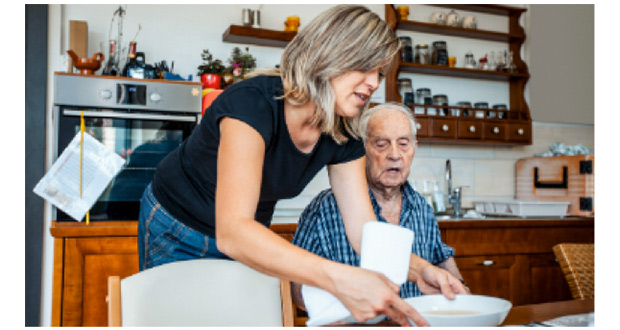Unpaid Carers Need More Support To Cope With Financial And Emotional Stress
 NICE has published new draft guidance which aims to improve the wellbeing of adults who provide unpaid care for people over 16 years old.
NICE has published new draft guidance which aims to improve the wellbeing of adults who provide unpaid care for people over 16 years old.
The recommendations emphasise what local authorities and health and social care practitioners can do to support carers.
For practitioners this involves identifying people who are unpaid carers so they can direct them to the appropriate financial, social and emotional support that is available.
The guideline advises practitioners to encourage carers to discuss supportive working arrangements with their employers. This might include flexible hours or providing a private space to take personal phone calls.
Professor Gillian Leng, deputy chief executive and director of health and social care at NICE, said: “Many carers are not aware of the help available to them, therefore it’s important that health and social care practitioners are at the forefront of identifying and supporting them.
“Caring for a loved one can bring a whole host of responsibilities and worries. This guidance hopes to address those concerns and ensure that carers feel supported enough to provide the best possible care for those they look after.”
The guideline also calls on health and social care commissioners to ensure replacement care services are available locally so carers can stay in, enter or return to work, education or training.
Approximately 6.5 million carers in the UK are unpaid with 3 million balancing work with caring responsibilities.
It’s estimated that unpaid care saves the UK £132 billion a year in care costs but a recent report by Carers UK found that more than two thirds of carers are using their own income and savings to cover the cost of care and two in five say they struggle to make ends meet. Currently, a carer’s allowance is £66.15 a week which equates to £1.89 an hour.
Health and social care organisations should also consider appointing a “carers’ champion” within their workforce to implement the recommendations made in this guideline and help other staff understand the responsibilities outlined in the Care Act 2014.
Minister for Care, Caroline Dinenage said: “Anyone could become a carer for a loved one at any stage of life, so it is crucial health and care services know how to recognise and support carers. We are improving carers’ lives through our cross-Government Action Plan and this guidance makes it clear how our brilliant health and care organisations can work together to achieve this.
“Carers’ Champions are a fantastic idea that can help ensure these recommendations are implemented and the system works for those who care – I hope to see more organisations appointing them.”




